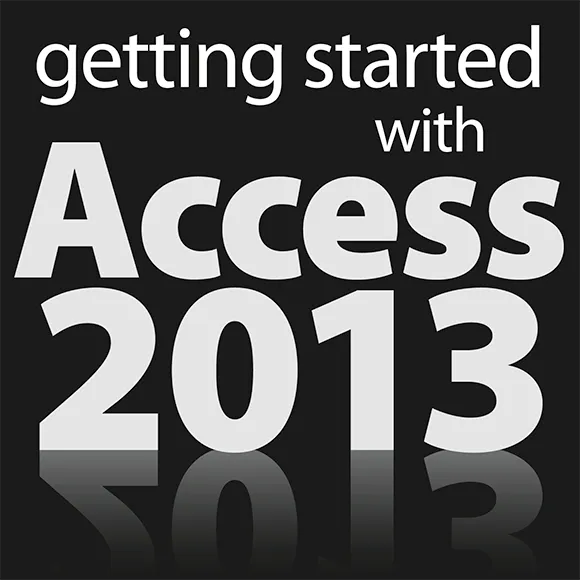Part I
Visit
www.dummies.com for great Dummies content online.
In this part . . .
Discover what Access is and does and what’s new in Access 2013.
Learn about the objects that make up an effective database, and get started building your first table.
Master database lingo so you can speak the language and understand the terminology.
Visit
www.dummies.com for great Dummies content online.
Chapter 1
Access 2013 Basic Training
In This Chapter
Deciding when to use Access
Discovering what’s new in Access 2013
Unlocking the basics of working with Access
Figuring out how to get started
Access 2013, the most recent version of the Microsoft Office database application, continues to be a very powerful program. You probably already know that, and perhaps that power — or your perceptions of all that Access can do — is what made you reach for this book. We congratulate you on your wise choice!
For all of its power, Access is also very — pardon the expression — accessible. It’s pretty easy to use at the edges, where a new user will be; you don’t have to venture all the way in to its core to get quite a lot out of the software. In fact, with just the basic functionality that you’ll discover in this book, you’ll be able to put Access through many of its most important paces, yet you’ll be working with wizards and other onscreen tools that keep you at a comfortable arm’s distance from the software’s inner workings, the things that programmers and serious developers play with. There. Don’t you feel better now?
You don’t have to use every feature and tool and push the edges of the Access envelope. In fact, you can use very little of everything Access has to offer and still create quite a significant solution to your needs for storing and accessing data — all because Access can really “do it all” — enabling you to set up a database quickly, build records into that database, and then use that data in several useful ways. Later on, who knows? You may become an Access guru.
In this chapter, you’ll discover what Access does best (and when you might want to use another tool instead), and you’ll get a look at what’s new and improved in Access 2013 (compared to Access 2010). You’ll see how it does what it does, and hopefully you’ll begin to understand and absorb some basic terminology.
Now, don’t panic; nobody’s expecting you to memorize tons of complex vocabulary or anything scary like that. The goal here (and in the next two chapters) with regard to terms is to introduce you to some basic words and general concepts intended to help you make better use of Access — as well as better understand later chapters in this book, if you choose to follow us all the way to its stunning, life-altering conclusion.
What Is Access Good For, Anyway?
What is Access good for? That’s a good question. Well, the list of what you can do with it is a lot longer than the list of what you can’t do with it — of course, especially if you leave things like “wash your car” and “put away the dishes” off the “can’t do” list. When it comes to data organization, storage, and retrieval, Access is at the head of the class.
Building big databases
Okay, what do I mean by big database? Any database with a lot of records — and by a lot, I mean hundreds. At least. And certainly if you have thousands of records, you need a tool like Access to manage them. Although you can use Microsoft Excel to store lists of records, it limits how many you can store (no more than the number of rows in a single worksheet). In addition, you can’t use Excel to set up anything beyond a simple list that can be sorted and filtered. So anything with a lot of records and complex data is best done in Access.
Some reasons why Access handles big databases well:
Typically, a big database has big data-entry needs. Access offers not only forms but also features that can create a quick form through which someone can enter all those records. This can make data entry easier and faster and can reduce the margin of error significantly. (Check out
Chapter 7 for more about building forms.)
When you have lots and lots of records, you also have lots of opportunities for errors to creep — duplicate records, records with misspellings, records with missing information — and that’s just for openers. So you need an application such as Access to ferret out those errors and fix them. (
Chapter 9 lays out how you can use Access to find and replace errors and search for duplicate entries.)
Big databases mean big needs for accurate, insightful reporting. Access has powerful reporting tools you can use to create printed and onscreen reports — and those can include as few or as many pieces of your data as you need, drawn from more than one table if need be. You can tailor your reports to your audience, from what’s shown on the reports pages to the colors and fonts used.
Big databases are hard to wade through when you want to find something. Access provides several tools for sorting, searching, and creating your own specialized tools (known as
queries) for finding the elusive single record or group of records you need.
Access saves time by giving you new uses for existing tools you may have used to ...



















